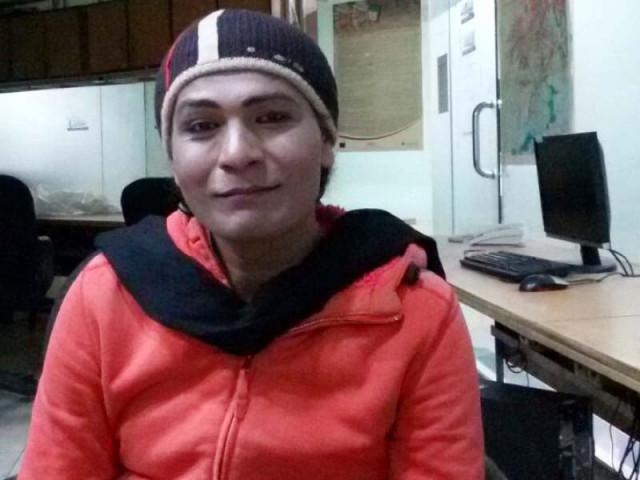Transgender flees community due to religious discrimination
Says community members in Multan separated their utensils, avoided interaction

Mushtaq Aashi. PHOTO: EXPRESS
Aashi’s inability to buy the gifts does not just come from the poverty that surrounds her, rather, it stems from the fact that she is a Christian transgender person who has had to face discrimination from other people who are transgender forcing her to leave her native Multan.
Five arrested in Sialkot after horrific video of man beating up transgender goes viral
“I have had to face more discrimination for being a Christian,” she tells The Express Tribune at an office near Aabpara.
“The moment the transgender community in Multan found out that I am a Christian, they started treating me as an ‘untouchable’,” Aashi said, claiming that other transgender persons “stopped eating with me and separated my plates, spoons and glasses while most of them avoided from shaking hands with me.”
Aashi says she was born in Multan in 1975 and was the youngest of six siblings. Her father was a government employee and despite having financial issues wanted her to become a doctor. While her mother left her when she was only three years old, she still managed to complete her FA.
“At the age of 16, my family realised that my behaviour, the way I walk or talk was different from others,” she said, adding that they would often find her in her room dancing. After the death of her father and sister, she lived for a while with her brother’s family caring for their children.
“To make both ends meet, I joined the local transgender community and danced at parties,” she said.
But the discrimination from the community forced her to leave Multan.
Eventually, she made her way to Islamabad. But discrimination followed her with none of the other people who are transgender in the city accepting her. Only Nadeem Kashish, the president of the Shemale Association for Fundamental Rights (Safar) in the capital, embraced her.
Staying with Kashish, Aashi started helping out with the construction of a mosque which the capitals’ transgender community is building in the Bari Imam area. “The moment other transgender persons in the area saw me inside the under-construction mosque they raised hue and cry about how could a Christian step inside a mosque and help in its construction,” she cried.
Such was the anger of the community, that they allegedly set fire to her belongings and savings. Like most other members of the transgender community in the capital, she is discriminated when it comes to job opportunities and has to eke out a living by asking for alms at traffic stops in Islamabad.
“They (nephew and niece) think that I have a reputable job in an office situated in one of the high-rises in Islamabad. Sadly, they are unaware of the fact that in our society, people like me are not welcome, and are rather forced in to beggary to make both ends meet,” she said.
South Korea's Kia to start assembling cars in Pakistan
Hence, every afternoon she puts on a lot of make-up to conceal her true identity and beg at traffic signals at different locations of the capital.
Haji Nargis Guru, president of the Shemale association of Multan however, refuted allegations of religious or ethnic discrimination within their community.
“We know that all of our members are aware that we are the most deprived section of this society. We cannot afford differences within our community,” she told The Express Tribune.
“We have differences in our community, but these are not based on creed, caste, sect, religion or ethnicity.”
WITH ADDITIONAL INPUT FROM OWAIS QARNI
IN MULTAN
Published in The Express Tribune, December 25th, 2016.



















COMMENTS
Comments are moderated and generally will be posted if they are on-topic and not abusive.
For more information, please see our Comments FAQ